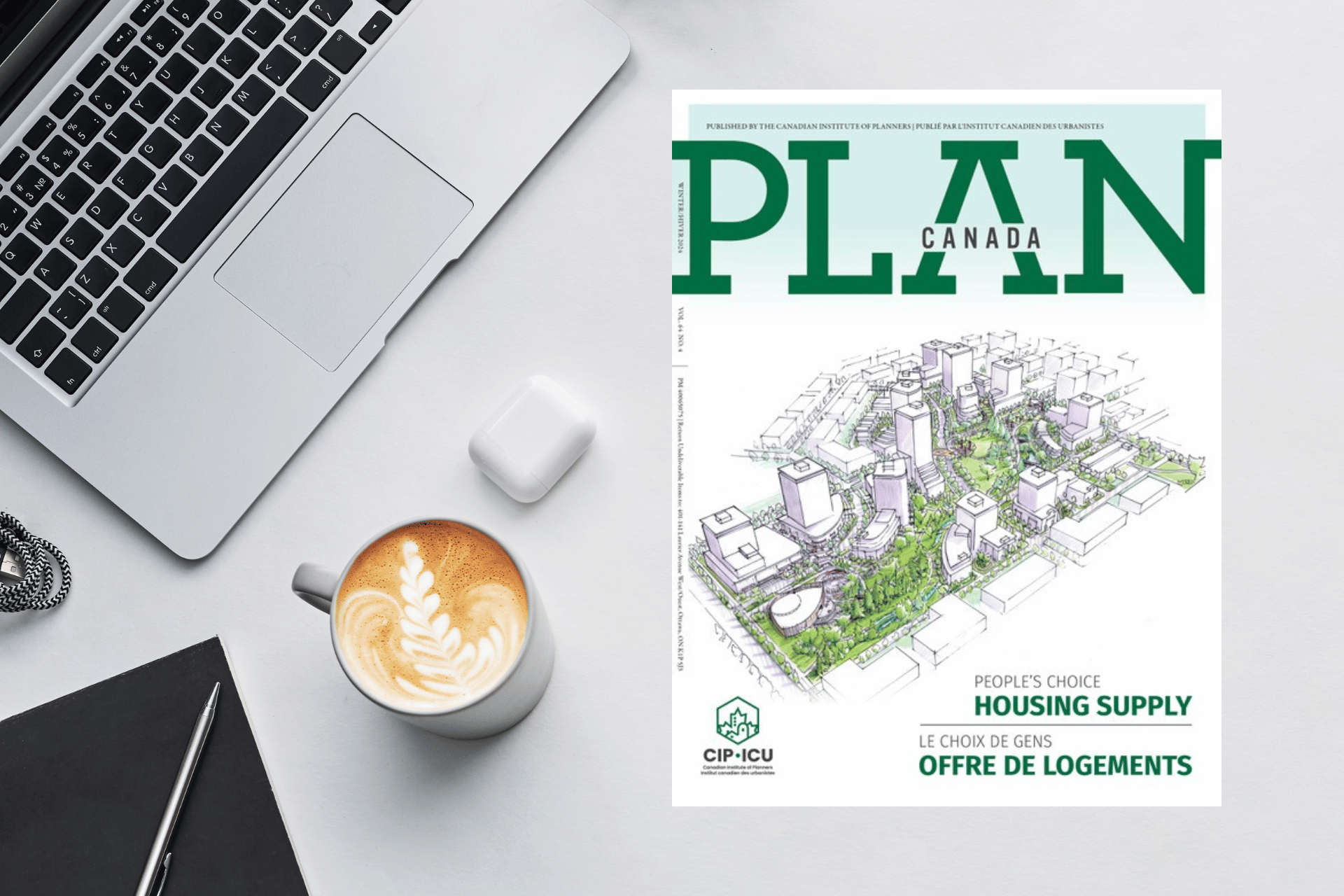Editors’ Note by Raymond Kan RPP, MCIP and Arlene Etchen
Critical Perspectives on Expanding Housing Supply
“More and more Canadians, young and old, are struggling under the weight of high rents, high mortgage payments, and intense competition for limited housing choices from coast to coast to coast. Policies and funding are now pivoting to confront the housing crisis on a scale not seen in generations. These are extraordinary times for planners. Planners are positioned at all levels of government, First Nations, the private sector, and the non-profit sector to meet the moment and help deliver net new housing supply.”
When we issued the above call for articles for the Winter 2024 issue of Plan Canada, we were looking for planners and practitioners to share innovative ideas and critical perspectives of current efforts to expand the housing supply in urban, suburban, and rural communities.
We were ecstatic with the volume and quality of submissions. The submissions covered a wide range of perspectives on what is happening across the country in the search for solutions to our limited and expensive housing supply. On behalf of the Editorial Committee, we are proud to present the following collection of articles that provide a range of perspectives about housing supply in Canada.
Did you know that some of the largest housing development projects being planned and constructed in Canada are under Indigenous leadership? Glenn Miller looks at the impact that three First Nations are having on expanding housing supply in Metro Vancouver. These First Nations are going beyond providing shelter for their communities by creating housing that is also open to others.
A second example of a First Nation-led housing initiative is the Nishnawbe Aski Nation Housing Strategy. Sheila McCartney, Michael McKay, Jeffrey Herskovits and Jamie Saunders share their experiences with the Nishnawbe Aski Nation – a political advocacy organization representing 49 member First Nations spanning the northern two-thirds of what is now Ontario.
A key metric of the housing crisis is the shortage of housing. But quantifying the housing supply gap is not as simple as comparing the number of households and the number of dwelling units. Nathanael Lauster and Jens von Bergmann make the case that tracking ‘doubled up’ households are essential to better understanding the true magnitude of housing shortages.
The housing crisis has created a moment to question longstanding ways of doing things. Gavin Williamson explores how removing the need for a second stairwell in new apartment building designs could create new opportunities and innovation for housing supply.
While the focus of many governments is on reforming zoning and development approval processes, they must not lose sight that financial incentives are also required to spur housing development. Land Value Taxes (LVT) is an intriguing tool that has been gaining attention for its theoretical benefits to spur housing development on underutilized properties on scale. Floyd Marinescu, Liam Wilkinson and Ken Yang provide an overview of LVT and explore the potential benefits.
Housing development can be a very divisive issue, and planners and practitioners are often in the thick of it. Emilie Adin and Catherine Rockandel look back on their careers to offer lessons learned and to encourage practitioners to re-assess the way they engage with the communities that they serve.
The Housing Accelerator Fund (HAF) has been a game changer in incentivizing municipalities to pursue innovative housing solutions. Christel Kjenner and Sarah Wilmot share Edmonton’s experience working with the HAF and how it has enabled advancements in permitting, infill development, and shovel-ready projects.
With the increased financial support and regulatory changes happening at all levels of government for increasing housing supply, there stands to be optimism that more housing will be developed along transit lines to enable access to public transit for low- or moderate-income people. Raymond Kan, James Stiver, and Lilian Chau reflect on recently enacted housing policies in British Columbia and Ontario and the degree to which equity was considered.
We are confident that these articles will inspire, challenge, and prompt reflections on current efforts to confront the housing crisis from coast to coast to coast. Let’s all continue to do the hard work with an open mind and an open heart.
How to Read This Issue of Plan Canada
Are you a CIP member?
Not a CIP member?
About the Editors
Raymond Kan RPP, MCIP
Guest Editor
Raymond Kan is a second-generation Canadian, born and raised on the unceded territory of the Musqueam, Squamish, and Tsleil-Waututh peoples, now known as the City of Vancouver. He resides in Vancouver with his partner and daughter.
Raymond holds an undergraduate degree in civil engineering from the University of British Columbia and a Master of Urban Planning from the University of Illinois at Urbana-Champaign. With over 20 years of experience, he has been at the forefront of transportation and land use planning and policy across Metro Vancouver, the San Francisco Bay Area, and Los Angeles County.
Driven by a personal mission to use public policy, partnerships, and advocacy to improve urban conditions for all residents—particularly those with lower incomes or who are systemically disadvantaged—Raymond is passionate about evidence-informed planning and policy development. He has a particular interest in fostering more equitable transit-oriented communities.
Arlene Etchen
Plan Canada Editorial Committee
Arlene Etchen has been working as a recognized knowledge mobilization and communications professional in the planning, housing, and energy sectors for over 15 years. Throughout her career, Arlene has applied her expertise by undertaking research, delivering lectures, and authoring articles involving topics such as sustainable affordable housing, secondary suites, accessibility, and aging-in-place. She has had the opportunity to deliver presentations nationally, and in Belgium, Scotland, and Ireland.
Arlene’s passion for housing and sustainability extends beyond her professional endeavors, to her volunteer work with the Institute without Boundaries (Brookfield Sustainability Institute), the York Region Water Conservation Council and the Earth Day Hometown Heroes initiative, recognizing leaders in sustainability.
